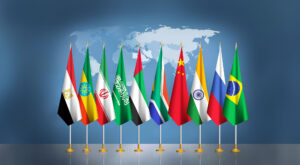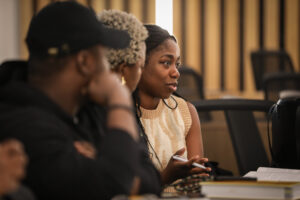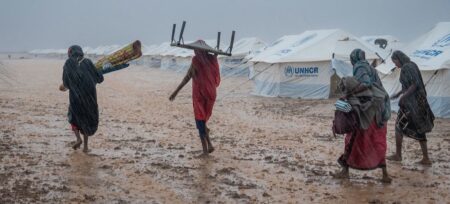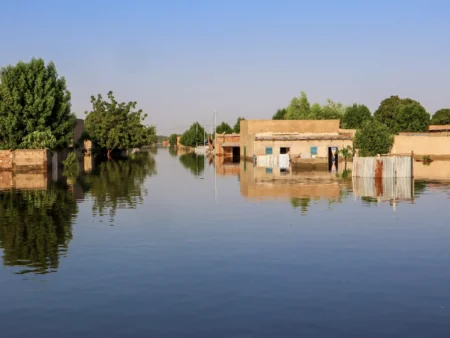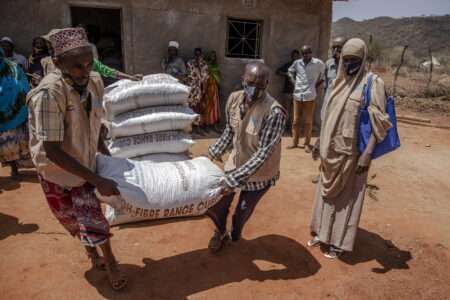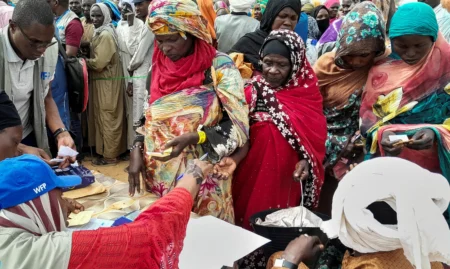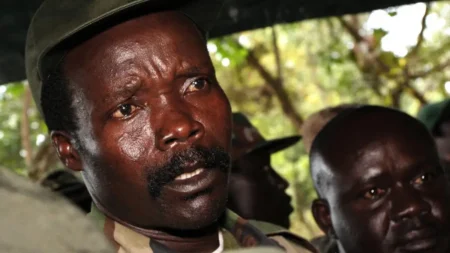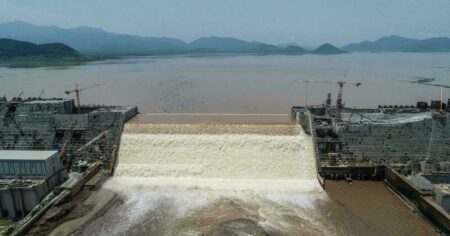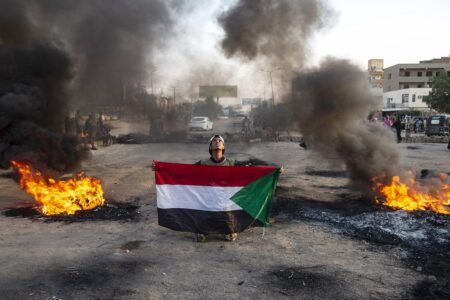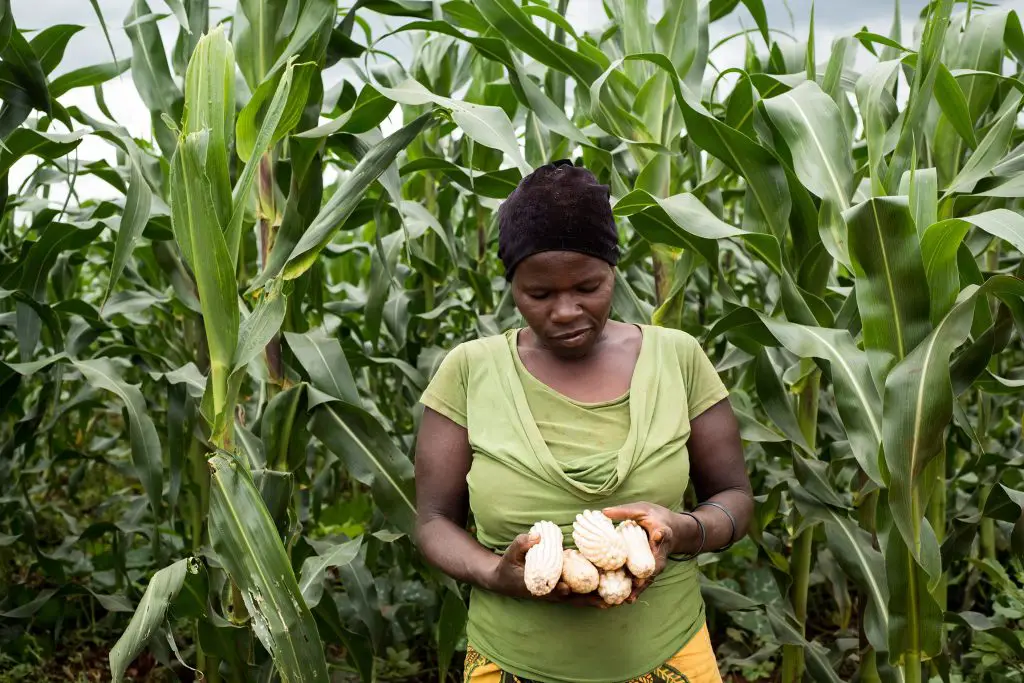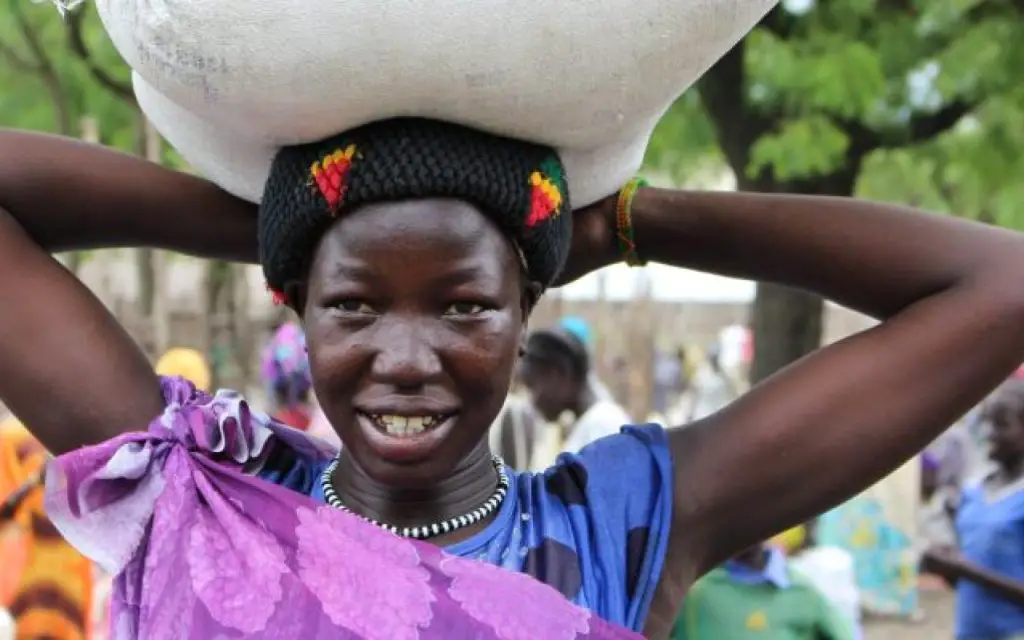- IMF Growth Forecasts: BRICS to Lead the World in the Next 5 Years
- Vantage Capital seals exit from PickAlbatros Hotels after $18.4M pandemic boost
- Madica backs Earthbond in bold pre-seed bet on sustainable solutions
- Venture capital and debt drive growth in Kenya’s agri-tech sector
- Sustainability Week Africa: Pioneering change amidst climate challenges
- Refugee Crisis in Chad as War and Hunger in Sudan Drive Thousands Across Border
- Senegal 2050: A Blueprint for Economic Transformation
- Kenya’s banking sector corporate taxes hit $563.7 million despite industry profit drop
Browsing: Sudan
- Experts have warned of a refugee crisis in Chad as escalating violence and a food crisis in Sudan compel large numbers to flee across the border.
- Since April 2023, conflict has persisted between the Sudanese army, led by the nation’s de facto leader Abdel Fattah al-Burhan, and the paramilitary Rapid Support Forces (RSF).
- Despite the challenges faced by refugees in Chad, the escalating violence in Sudan is compelling an increasing number of individuals to seek refuge there.
Refugee crisis in Chad
Refugees and aid organizations have warned of worsening conditions in the overcrowded and underfunded camps of Chad as escalating violence and a food crisis in Sudan compel large numbers to flee across the border.
In the first week of October alone, approximately 25,000 individuals, primarily women and children, sought refuge in eastern Chad, marking an unprecedented influx for a week in 2024. Chad, ranked among the poorest nations …
- Since late June, heavy rains have hit parts of Sudan, including South Darfur, Red Sea, River Nile, and Northern states, affecting around 500,000 people.
- In Chad, at least 340 people have lost their lives, and nearly 1.5 million people have been impacted, with over 160,000 homes destroyed by floods.
- Nearly a third of Lesotho’s population—about 700,000 people—are at risk of food insecurity in the coming months due to historic drought gripping the country.
Extreme weather patterns continue to batter Africa, plunging millions of people into a deepening humanitarian crisis. From the ongoing catastrophic floods in Sudan and Chad to the severe drought crippling Lesotho, and other economies in the southern Africa region the impacts of climate change are starkly evident across the continent.
As floods displace families, destroy homes, and disrupt agriculture, drought worsens food insecurity, leaving communities on the brink of disaster.
Sudan and Chad drenched by devastating floods
…- Currently, over 25.6 million people—more than half of Sudan’s population—are at risk of acute hunger.
- A coalition of the US, Switzerland, Saudi Arabia, Egypt, the UAE, the African Union, and the UN, has pledged to deliver crucial relief supplies to famine-stricken areas in Darfur.
- Sudan’s conflict has triggered a displacement crisis, with over 10.7 million people forced to flee their homes since the fighting began.
As conflict continues to ravage Darfur, the scale of famine in Sudan continues to unfold, drawing urgent global intervention. Last week, a coalition of countries and the United Nations (UN) announced the deployment of vital food aid to address the famine in Sudan’s conflict zones.
Sudan, a northeast African country with a long history of conflict, faces an unprecedented humanitarian crisis. The country’s grinding civil war has plunged millions into acute hunger, with famine declared in parts of Darfur.
The crisis is compounded by heavy …
- Sudan’s humanitarian crisis is the worst in recent history, according to the United Nations.
- One-third of Sudan’s population, that is, 18 million people, are facing acute food insecurity, while 730,000 Sudanese children are believed to be suffering from severe malnutrition.
- World Food Programme(WFP) has delivered food to over 5.2 million people within Sudan since conflicts started in April.
Sudan’s humanitarian crisis
The United Nations Humanitarian Office has warned that Sudan is on the verge of facing the worst humanitarian crisis in recent history. Key drivers of this situation include intensified conflict and growing inter-communal violence, an economic crisis, soaring prices of food, fuel and essential goods, and below-average agricultural production.
“By all measures – the sheer scale of humanitarian needs, the numbers of people displaced and facing hunger – Sudan is one of the worst humanitarian disasters in recent memory,” Edem Wosornu, director of operations at the UN Office for …
The whereabouts of Joseph Kony, the infamous leader of the Lord’s Resistance Army (LRA), remains one of the most enduring mysteries in international justice and African politics. Despite extensive efforts to capture him, Kony continues to evade justice, with his exact location a subject of much speculation and few definitive answers.…
- The Grand Ethiopian Renaissance Dam (GERD) impact on downstream nations Egypt and Sudan has turned the project into a geopolitical hotspot.
- The three countries expect to find common ground on the Nile dam’s construction in about four months.
- Egypt’s concerns are rooted in its dependence on the Nile waters for the livelihoods of its over 100 million people.
The Grand Ethiopian Renaissance Dam (GERD), perched on the Blue Nile, stands as a symbol of Ethiopia’s ambitions for progress, energy independence, and economic growth. However, the $4.6 billion dam’s colossal impact on downstream nations, particularly Egypt and Sudan, has transformed this engineering marvel into a geopolitical hotspot.
Negotiations over the fate of the GERD are back on, with leaders of Egypt, Ethiopia, and Sudan expressing their intent to find common ground within a four-month window.
The stakes are high. Egypt relies on the Nile’s waters for agricultural sustenance and the livelihoods …
- Ongoing wars in Africa are bleeding billions from poor economies as investors flee the region.
- Sudan army is spending about $1.5 million per day fighting the Rapid Support Forces.
- IMF says Ethiopia’s GDP contracted from 9 percent in 2019 to 6.1 percent in 2020 as Tigray war intensified.
Wars in Africa are costing an arm and a leg, and throwing an awful wrench on poor economies that are hardly providing the bare minimum to their citizens. Take for instance the latest ongoing war in Sudan. Sudan Tribune notes that it is costing roughly $1.5 million every day for the Sudanese army to fight the Rapid Support Forces (RSF).
For Sudan, a country whose poverty rate rose from 64.6 percent in 2021 to 66.1 percent last year, $1.5 million is a huge sum of money to be wasted on senseless fighting.
Wars in Africa yielding economic crisis
Sudan is one of …
- The UN World Food Programme (WFP) in Sudan has received a $100 million contribution from the World Bank to assist with critical emergency cash and food sustenance in Sudan
- The Sudan Emergency Safety Nets Project aims to provide cash transfers and food for over two million people across the impoverished and crisis-wracked nation
- The country’s economic and political crisis has grown more intense due to rising inflation, conflict and displacement
The UN World Food Programme (WFP) in Sudan has received a $100 million contribution from the World Bank to assist with critical emergency cash and food sustenance in Sudan.
In the first-ever direct contribution between the two UN agencies in the country, the Sudan Emergency Safety Nets Project aims to provide cash transfers and food for more than two million people across the impoverished and crisis-wracked nation, including those internally displaced.
“WFP is extremely grateful to the World Bank for …
- Agriculture is contributes 23 percent of African GDP, Mckinsey 2019
- At least 43.8 percent of people are employed in the agriculture sector
- Only 5-6 percent of arable land in Africa is irrigated
Agriculture in Africa has not only an economic value but a cultural significance. It is time to transform the economy and lives of African farmers. Africa is home to nearly 60 percent of the world’s arable land. Over the past decade, African agriculture has faced a number of shocks which beg for technological transformation. Farming in Africa contributes greatly to the welfare of most rural-based populations.
Despite the standing potential, productivity in Africa is lagging; hence, the role of modern technology stands to draw billions into it.Africa imports some food items abroad, such as wheat from war-entangled nations Ukraine and Russia, causing severe food insecurity issues for financially constrained nations such as Sudan.
Agriculture is not only the…
The food security situation is critical and demands international attention–which is lagging. According to Africa News, at least 400,000 tonnes of wheat won’t be sent to Sudan by the USA as promised in 2022.
The devastating impacts of civil conflicts, insecurity, drought have crippled Sudan’s food systems. The latter is responsible for displacing at least 1.9 million people across Sudan (UN).
The recent situation report by Reliefweb on Sudan food security reinforces the current trend of concern.
According to the report, displacement scenarios observed due to political instability affect agricultural operations significantly impacts cereal and non-cereal food prices.…
